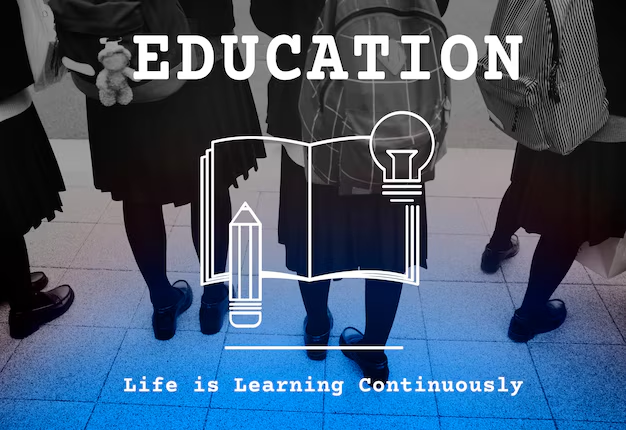Higher education is a dynamic and multifaceted field that offers a wide range of career opportunities across various sectors, from teaching and research to administration, student support, and beyond. With the continued expansion and transformation of universities and colleges globally, professionals in higher education are finding increasing opportunities to shape academic and student experiences, innovate in curriculum development, lead organizational change, and drive research initiatives. Whether you are considering a career in academia or administration, or you are a professional seeking to explore new paths, understanding the diverse positions available in the higher education sector is essential.
In this article, we will explore the many career paths in higher education, offering insights into the different types of positions, required qualifications, responsibilities, challenges, and opportunities. By the end, you will have a better understanding of how to navigate and explore the vast landscape of higher education careers.
Key Takeaways
- Higher education careers span various fields, including teaching, research, administration, student support, and library services.
- Faculty positions require advanced degrees and significant expertise, while administrative roles require leadership and management skills.
- The competitive nature of higher education careers can be challenging, but persistence, networking, and continuous professional development can lead to success.
- The evolving landscape of technology, diversity, and innovation in higher education presents new opportunities for professionals in the sector.
Types of Higher Education Positions

Higher education institutions offer a broad array of positions that span academic, administrative, and support roles. The following sections will outline some of the most common and rewarding career paths in higher education.
Faculty Positions
Faculty members, including professors, lecturers, and instructors, are the cornerstone of any academic institution. They play an essential role in the delivery of education, research, and the intellectual development of students. Faculty positions are typically classified based on seniority and role, with the most prominent categories being:
- Tenure-Track Professors: These faculty members hold permanent positions and are expected to contribute significantly to teaching, research, and service to the university community. Achieving tenure—after a probationary period of several years—is a prestigious milestone that provides job security and academic freedom.
- Adjunct Faculty: Adjunct professors are part-time instructors hired on a temporary or contract basis. They typically teach specific courses but may not be involved in research or service activities. While adjunct positions offer flexibility, they often come with fewer benefits and less job security.
- Lecturers and Senior Lecturers: Lecturers are typically full-time faculty members responsible for teaching, and senior lecturers hold a higher status with additional responsibilities. These roles are non-tenure-track and focus primarily on teaching rather than research.
Faculty positions in higher education require advanced degrees (usually a Ph.D. for tenure-track professors) and a strong academic background. They also require a passion for teaching and research, as well as the ability to mentor students and contribute to academic scholarship.
Research Positions
Research is a central pillar of higher education, and many academic institutions house research centers, institutes, and laboratories focused on various disciplines. If you are passionate about exploring new ideas and advancing knowledge, research positions may be an ideal career path. Some of the most common research-related roles include:
- Principal Investigators (PIs): PIs lead research projects, develop research proposals, and manage research teams. PIs typically have a Ph.D. and significant expertise in their field. They are responsible for securing research funding, overseeing data collection and analysis, and publishing their findings in academic journals.
- Postdoctoral Researchers: After earning a Ph.D., postdocs work under the mentorship of senior researchers to further develop their expertise. Postdoctoral positions are typically temporary but offer valuable experience that can pave the way for faculty appointments or independent research careers.
- Research Assistants (RAs): RAs are typically graduate students or early-career researchers who assist senior researchers with data collection, analysis, and publication. These positions provide hands-on experience and contribute to the research output of a department or lab.
Research careers often require advanced degrees, specialized knowledge, and the ability to work independently. They also require persistence and dedication, as research projects can be time-consuming and competitive, requiring grant funding and publication in academic journals.
Administrative and Leadership Roles
While faculty positions are often the most visible roles in higher education, administrative and leadership positions are equally critical to the successful functioning of an academic institution. Administrative staff manage operations, finances, student services, and academic affairs. Some key administrative positions include:
- Deans and Provosts: Deans are responsible for overseeing specific colleges or schools within a university, while provosts are senior administrators who handle academic affairs university-wide. These positions involve decision-making, leadership, budgeting, and strategic planning. Deans and provosts work closely with faculty, staff, students, and external stakeholders.
- Vice Presidents and Presidents: These high-level administrators hold the top leadership roles at universities and colleges. The president is typically the chief executive officer of the institution, responsible for setting institutional priorities and managing external relationships. Vice presidents oversee specific areas such as student affairs, finance, or institutional advancement.
- Directors of Academic Affairs and Student Affairs: Directors manage key services related to academics, student life, career services, and student support. They are responsible for ensuring the success and well-being of students, handling policy implementation, and overseeing departmental functions.
Administrative roles in higher education are diverse and require strong leadership, organizational, communication, and problem-solving skills. They often require a combination of academic qualifications (such as a master’s or Ph.D.) and professional experience in the field.
Student Support and Services
Student support professionals are an essential part of the higher education ecosystem, providing guidance, counseling, and resources to help students succeed academically and personally. Some common student support positions include:
- Academic Advisors: Academic advisors work closely with students to help them plan their course schedules, select majors, and ensure they are meeting graduation requirements. They also provide advice on career development and academic strategies.
- Career Counselors: Career counselors assist students with exploring career options, applying for internships, preparing resumes, and finding employment opportunities. They also offer guidance on career development strategies and interview preparation.
- Counselors and Mental Health Professionals: Higher education institutions often employ mental health counselors, psychologists, and social workers who provide support to students dealing with emotional and psychological challenges.
- Student Affairs Coordinators: These professionals oversee a wide range of student activities, including clubs, organizations, and events. They also work on creating a positive campus culture and promoting student engagement.
Roles in student services typically require a background in psychology, counseling, or education. Strong interpersonal and communication skills are essential, as is a genuine interest in helping students thrive both academically and personally.
Library and Information Services
Librarians and information professionals play an essential role in supporting academic success by managing resources, assisting with research, and ensuring access to scholarly materials. Some positions in library and information services include:
- Academic Librarians: Academic librarians manage library collections, provide information literacy training, and help students and faculty access research materials. They are key to supporting the learning and research activities of a university.
- Digital Archivists: With the growing importance of digital resources, digital archivists are responsible for preserving, organizing, and managing electronic records, research data, and other digital materials.
- Library Technicians: These professionals assist with cataloging and organizing library resources, providing user support, and ensuring that the library operates smoothly.
Librarians and information services professionals are typically required to have a master’s degree in library science (MLS or MLIS) or a related field. These positions require organizational skills, attention to detail, and a passion for research and education.
Challenges in Higher Education Careers

While higher education offers a wide range of rewarding career paths, there are several challenges that professionals in this field must navigate:
Job Competition
Due to the highly specialized nature of many roles in higher education, competition for positions, especially faculty roles, can be intense. Candidates often need to possess advanced degrees, extensive experience, and a strong professional network to be considered for prestigious positions.
Workload and Burnout
Higher education professionals, especially faculty members and administrators, can face high demands on their time. Faculty are often expected to balance teaching, research, and service responsibilities, while administrators may need to manage large teams and complex projects. These demands can lead to stress and burnout.
Financial Pressures
Budget cuts, reduced funding, and increasing tuition fees have placed significant financial pressure on many higher education institutions. This has led to reduced resources for faculty research, student services, and even staff salaries. Many professionals in the field may find themselves working under constrained financial conditions.
Changing Technology and Teaching Methods
Technology is rapidly transforming higher education, with more universities adopting online learning, digital tools, and virtual classrooms. While these advancements present opportunities, they also require professionals to continually adapt and learn new tools and methods.
Assess Skills
To start your journey in higher education, it’s crucial to evaluate your skills and how they align with potential roles. Reflect on your strengths, weaknesses, and interests. Are you drawn to direct student interaction, or do you prefer the strategic planning side of education? Your skill set might be suited for academic advising, where interpersonal skills are key, or institutional research, which relies on data analysis. Remember, many roles in higher education value transferable skills like communication, project management, and leadership.
Research Roles
Once you’ve identified your skills, delve into researching various roles within higher education. Look beyond the obvious positions of professors and lecturers to discover careers in student life, admissions, alumni relations, or educational technology. Each university and college has a unique structure, but many share common departments such as financial aid, career services, and international programs. Understanding the functions and responsibilities of these areas can help you pinpoint where your interests lie.
Network Broadly

Networking is a powerful tool for uncovering opportunities in higher education. Attend conferences, join professional associations, and connect with alumni from your institution. Engage in discussions on platforms like LinkedIn to learn from others’ experiences. Broad networking can provide insights into different roles and help you establish relationships with professionals who can offer advice or even alert you to job openings.
Gain Experience
Gaining relevant experience is key to entering and advancing in higher education careers. Consider internships, volunteer work, or part-time positions that provide exposure to the inner workings of educational institutions. These experiences not only enhance your resume but also give you a taste of various roles, helping you to make informed decisions about your career path.
Consider EdTech
Don’t overlook the burgeoning field of educational technology (EdTech), which merges higher education with digital innovation. If you have a knack for technology and a passion for education, roles in EdTech could be a perfect fit. These positions often focus on developing and implementing technological solutions that enhance learning and administrative efficiency within institutions.
Stay Adaptable
Lastly, staying adaptable and open to learning is vital in the ever-evolving landscape of higher education. Be prepared to pursue additional certifications or training to meet the demands of the job market. Keep an eye on emerging trends and how they might influence different career paths within the sector. Your ability to adapt and grow with the industry can set you apart as a valuable asset to any educational institution.
Why pursue a career in higher education?
A career in higher education opens opportunities for rewarding jobs in academic affairs, research, professional services, and student affairs, among others. Perhaps, the most significant reward for pursuing a career in higher education will be your ability to influence student outcomes.
There are also a variety of roles classified under higher education careers, including academic posts, research-related posts, administrative posts, and professional services, which encompass IT jobs and other functions. Higher education majors may choose to concentrate on higher education technologies, student development, international education, educational leadership, enrollment management, or community college leadership.
Since every educational institution is also an organization that is composed of different functions that ensure the smooth operations of the school, careers in higher education are also similar to other career paths that bring both extrinsic and intrinsic rewards.
What is the job outlook for higher education professionals?
According to data from the U.S. Bureau of Labor Statistics, careers in higher education appear to be positive. For instance, postsecondary education administrators can look forward to a job growth of 4% until 2032, translating into approximately 15,200 jobs each year.
Similarly, jobs for postsecondary teachers are expected to grow by 8% until 2032. This means over 118,000 openings are expected for the role each year. This positive job outlook may be the result of increased demand as students continue to enroll in postsecondary institutions.
In my research, I also discovered that, aside from post-secondary educational administrators and teachers, higher education jobs with the highest growth include institutional research analyst (161%) head of campus museum (120%), and head of IT service delivery (64%).
Unlike other careers that have a seasonality element, in the higher education sector, there is always a high demand, which makes it one of the best college majors.
Essential Skills for Higher Education Professionals
- Collaboration and networking. The ability to work well with others is a key skill as educational institutions typically work with other organizations and institutions in providing and enhancing the learning experiences of students. In addition, partnerships and collaborations with other schools are essential in improving program offerings.
- Ability to communicate with empathy. Unlike with other organizations where relationships are purely business in nature, working in the higher education sector requires a commitment to upholding the welfare of students. Some higher education professionals involved in student affairs even take up online psychology degrees to learn counseling skills.
- Teamwork and relationship-building skills. In academic posts and research-related posts, teamwork is essential. The presence of various stakeholders and different departments requires skills that work well with teams. Higher education professionals are expected to have the capacity to form relationships with other institutions for the advancement of practice.
- Organizational Skills. In research and teaching, organizational skills are essential. From preparing the instructional materials to delivery and evaluation, organizational skills are important to achieve course objectives. This also applies to the conduct of research and administration. Higher education professionals should be able to identify which is the most important among everyday tasks.
General Skills for Higher Education Professionals
- Communication Skills. Both oral and written communication skills are essential in any type of job, but more so in higher education careers. Everyday interactions with various stakeholders will require the ability to communicate clearly. Among employers, 54% agree that communication is among the most important skills college graduates should be able to demonstrate. From coordinating with other teams to delivering important announcements, higher education professionals should be able to communicate clearly. There are available writing degrees online for professionals who want to improve this particular skill.
- Critical Thinking Skills. The ability to evaluate situations free of any bias is essential in higher education careers. In every decision process, the welfare of students, as well as of other stakeholders, needs to be considered. A survey by the Bipartisan Policy Center and the Association of Colleges and Universities found that 62% of college students believe critical thinking skills are a top priority for higher education, while 60% of employers consider it very important for workforce success.
- Problem-Solving Skills. In roles related to student affairs, you will most likely encounter problems. From financing problems to academic challenges, higher education professionals must assist students in resolving their concerns. This requires strong problem-solving skills. Significant pedagogical transitions require HEIs to adapt and make the necessary changes.
- Leadership. For administrators and heads of departments in higher education, leadership is crucial. The ability to lead teams toward a common goal is important. Higher education careers require leadership skills to be able to move forward with courage even in the most challenging times. Higher education professionals typically take online masters in leadership programs for career advancement.
How do you start your career in higher education?
Students keen on pursuing a career in higher education start by taking a two-year associate degree or four-year bachelor’s degree. These typically require a high school degree or a general education (GED) test passing score.
Careers in higher education are classified as professionals, staff, administrators, tenure-track faculty, and non-tenure-track teaching faculty. In the academic year 2020 to 2021, the average pay for office and administrative support occupations is $45,593.
Also Read : Navigating Higher Education Careers: Opportunities Challenges And Future Trends
Conclusion
Higher education is an expansive field with a wide range of career opportunities, from faculty and research roles to administration, student support, and library services. As higher education continues to evolve, there will be new opportunities for professionals to contribute to the academic community and make a lasting impact. However, the challenges of competition, workload, and financial pressures require resilience, adaptability, and continuous professional development.
By understanding the diverse positions in higher education and the qualifications and skills required for each, you can make informed decisions about your career path in academia and beyond. Whether you are interested in teaching, research, administration, or student services, there is a wealth of opportunities to explore in this dynamic and ever-evolving sector.
FAQs
What qualifications are required for a faculty position in higher education?
Most faculty positions require a Ph.D. or terminal degree in the field of study. For adjunct roles, a master’s degree may be sufficient.
How competitive are faculty positions in higher education?
Faculty positions, especially tenure-track roles, can be highly competitive, with many candidates vying for a limited number of positions.
What administrative positions are available in higher education?
Administrative positions include roles such as deans, provosts, student affairs coordinators, and directors of academic affairs. These positions require leadership and management experience.
What are the benefits of a career in student affairs?
Careers in student affairs provide opportunities to positively impact students’ academic and personal growth. These roles involve mentoring, counseling, and creating a supportive campus environment.
How can I transition from a research position into a faculty role?
To transition from a research position to a faculty role, you typically need to build a strong publication record, establish a teaching portfolio, and gain experience in academic leadership.
Are there opportunities for advancement in library and information services?
Yes, professionals in library and information services can advance to senior roles, such as head librarian, director of information services, or digital archives manager.
What skills are essential for success in higher education administration?
Key skills for higher education administrators include leadership, communication, budgeting, strategic planning, and the ability to navigate complex institutional structures.




